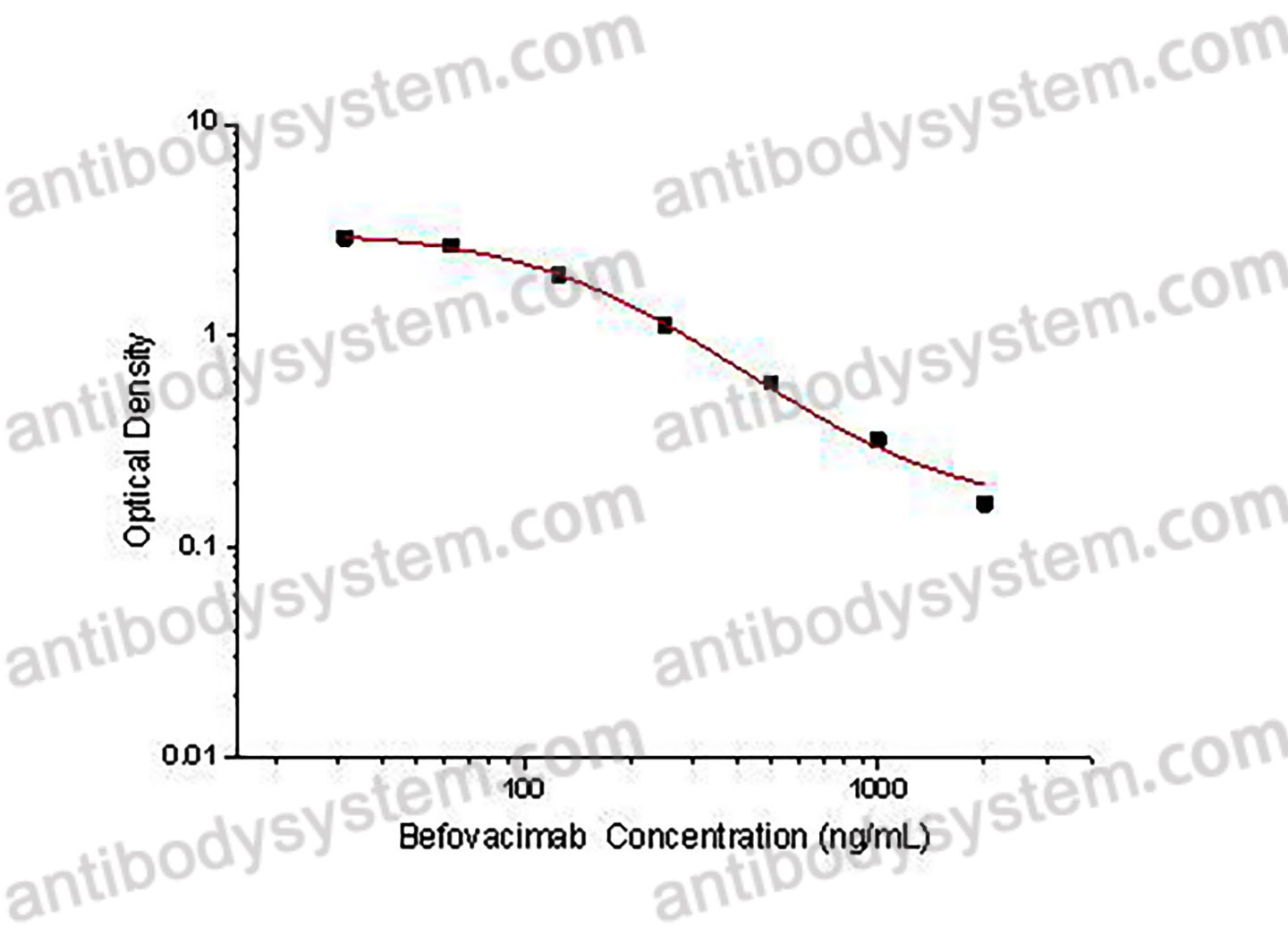Catalog No.
KDC82801
Description
PRINCIPLE OF THE ASSAY This assay employs the quantitative competitive enzyme immunoassay technique. Recombinant Human TFPI has been pre-coated onto a microplate. Standards or samples are premixed with biotin-labeled antibody and then pipetted into the wells. Befovacimab in the sample competitively binds to the pre-coated protein with biotin-labeled Befovacimab. After washing away any unbound substances, Streptavidin-HRP is added to the wells. Following a wash to remove any unbound enzyme reagent, a substrate solution is added to the wells and color develops in inversely proportion to the amount of Befovacimab bound in the initial step. The color development is stopped and the intensity of the color is measured.
Applications
Used for the quantitative determination of Befovacimab concentration in serum and plasma.
Detection method
Colorimetric
Sample type
Plasma, Serum
Assay type
Quantitative
Range
31.25 - 2,000 ng/mL
Sensitivity
4.50 ng/mL
Precision
Intra-Assay Precision (Precision within an assay): <20%
Three samples of known concentration were tested sixteen times on one plate to assess intra-assay precision.
Inter-Assay Precision (Precision between assays): <20%
Three samples of known concentration were tested in twenty four separate assays to assess inter-assay precision.
|
|
Intra-Assay Precision |
Inter-Assay Precision |
||||
|
Sample |
1 |
2 |
3 |
1 |
2 |
3 |
|
n |
16 |
16 |
16 |
24 |
24 |
24 |
|
Mean (ng/mL) |
956.5 |
233.9 |
97.7 |
904.8 |
218.9 |
92.4 |
|
Standard deviation |
44.6 |
12.7 |
7.6 |
50.2 |
14.1 |
9.3 |
|
CV (%) |
4.7 |
5.4 |
7.8 |
5.6 |
6.4 |
10.0 |
Recovery
80-120%
Shipping
2-8 ℃
Stability and Storage
When the kit was stored at the recommended temperature for 6 months, the signal intensity decreased by less than 20%.
Alternative Names
BAY-1093884
Background
Bevacizumab is a recombinant human IgG1 monoclonal antibody specific for all human vascular endothelial growth factor-A (VEGF-A) isoforms. The humanized anti-VEGF monoclonal antibody, bevacizumab, has been approved by the FDA as a first-line treatment for metastatic colorectal cancer in combination with chemotherapy. The pharmacokinetic properties of bevacizumab in several species have been previously described and are consistent with a typical humanized monoclonal antibody. It was shown in the literature that the surveillance of circulating concentration during maintenance therapy represents a direct and/or indirect factor for some other side effects. Identification of biomarkers for (non-)response and risk factors for adverse drug reactions that might be related to serum concentrations and maintaining the effective concentration of Bevacizumab in order to potentially avoid some side effects with a reliable method might be beneficial.



 Human IgG ELISA Kit-antibodysystem.jpg)